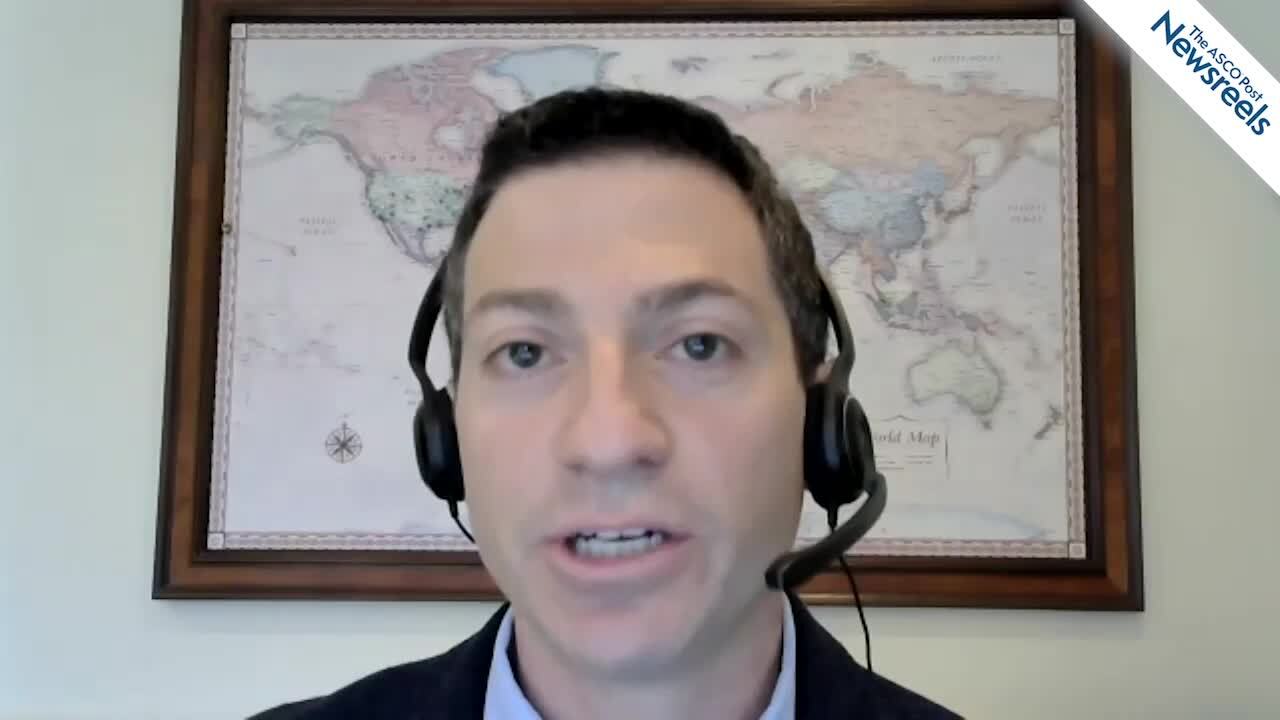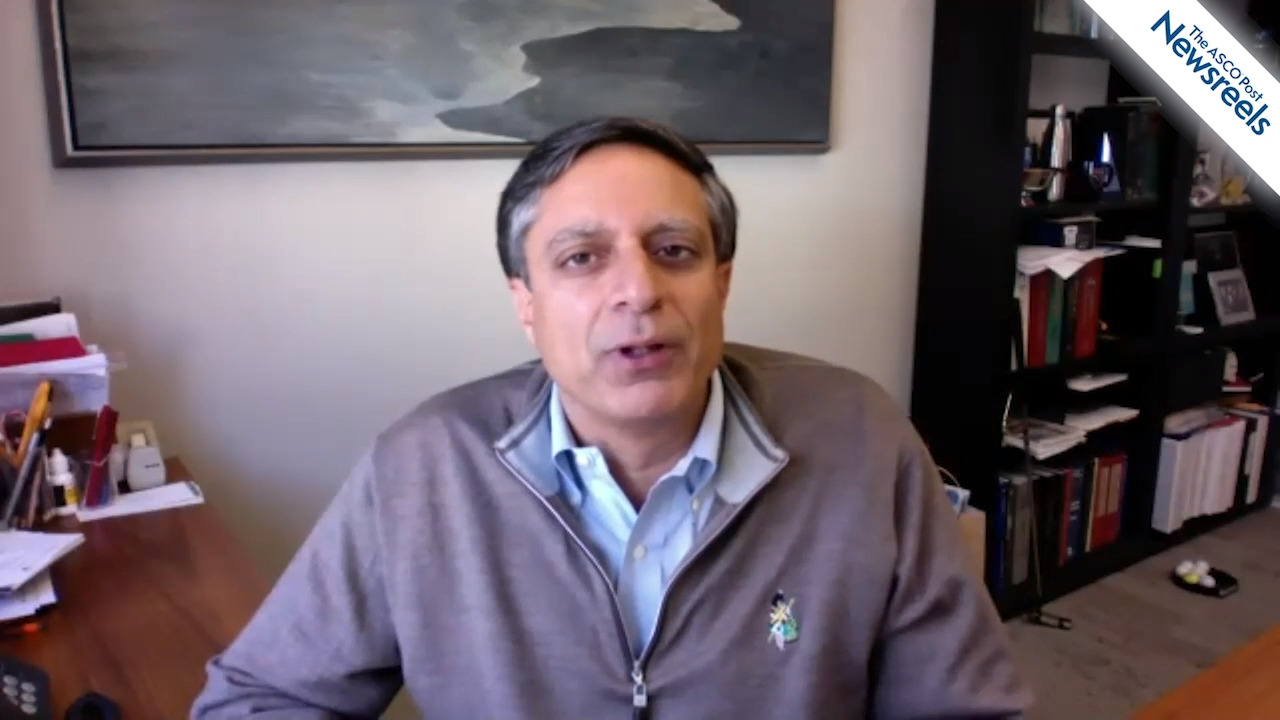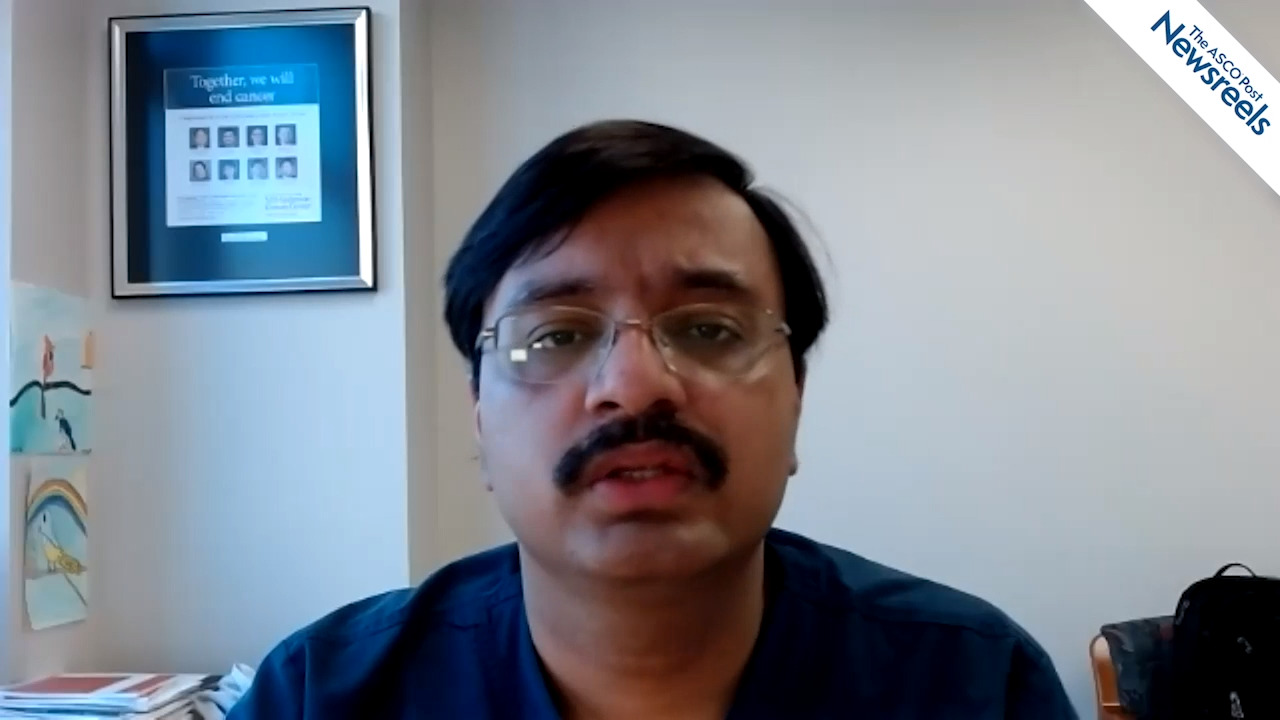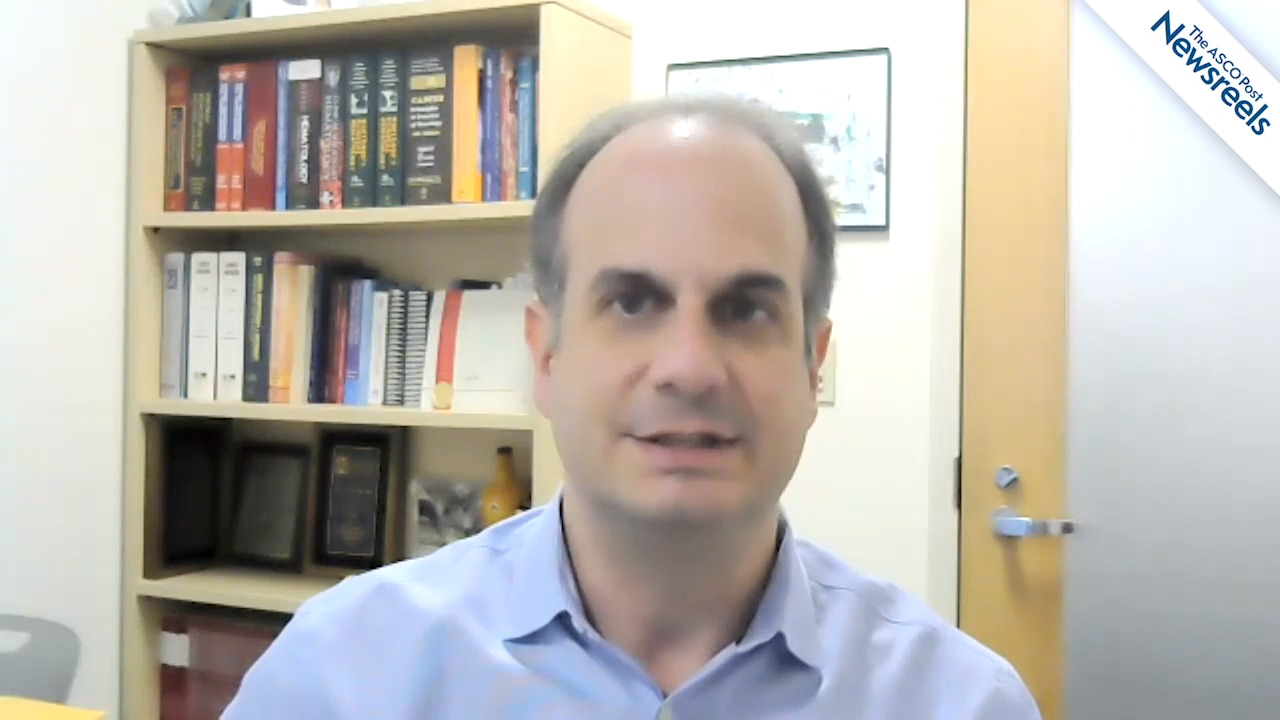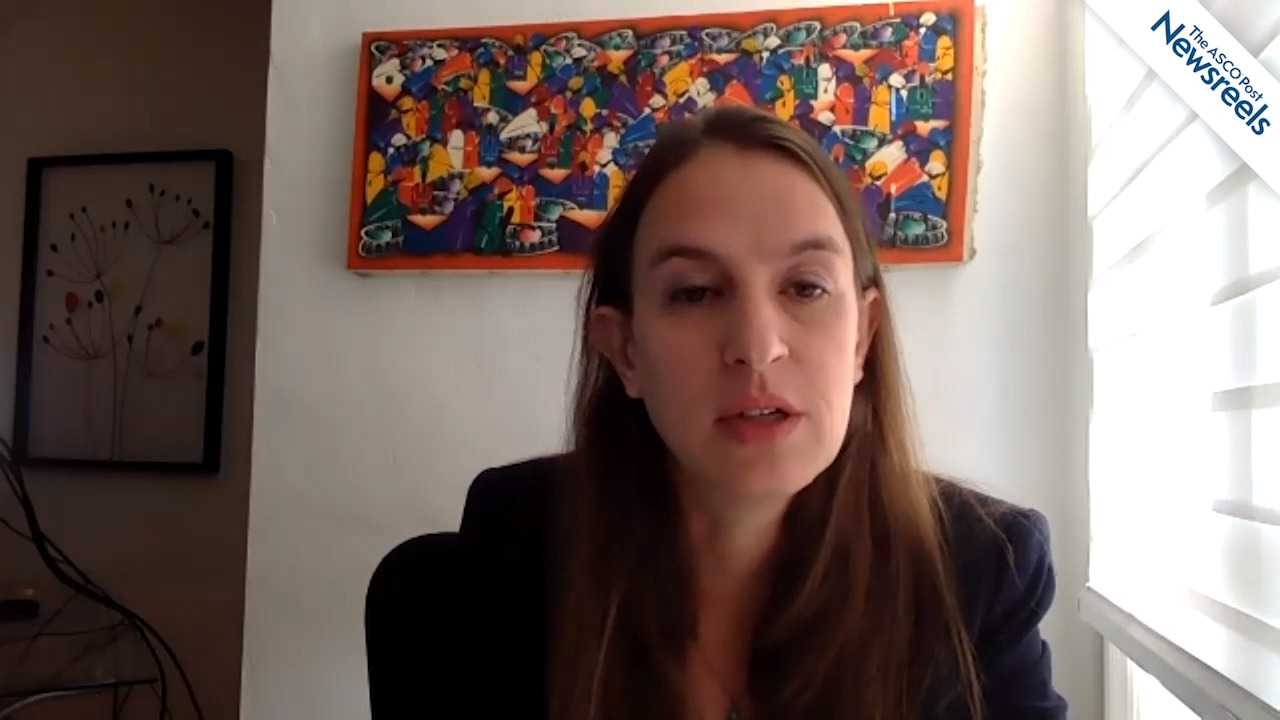Farhad Ravandi, MD, on AML: Novel Combination Therapies for Newly Diagnosed Disease
2020 ASH Annual Meeting & Exposition
Farhad Ravandi, MD, of The University of Texas MD Anderson Cancer Center, offers his expert perspective on key treatment studies in acute myeloid leukemia on the use of gilteritinib, consolidation chemotherapy, venetoclax, cladribine, azacitidine, quizartinib, decitabine, and CPX-351 (Session 616 [Abstracts 24- 29]).
The ASCO Post Staff
Matthew S. Davids, MD, of Dana-Farber Cancer Institute, summarizes three key studies from a session he co-moderated on ibrutinib plus venetoclax for first-line treatment of patients with chronic lymphocytic leukemia (CLL) and small lymphocytic lymphoma (SLL), long-term responses to these agents for relapsed and refractory CLL, and undetectable minimal residual disease following fixed-duration treatment with venetoclax and rituximab for CLL (Abstracts 123, 124, and 125).
The ASCO Post Staff
Sagar Lonial, MD, of the Emory University School of Medicine, summarizes key papers presented in a session he co-moderated on how second-generation CAR T cells can be used to treat patients with multiple myeloma (Session 653).
The ASCO Post Staff
Nitin Jain, MD, of The University of Texas MD Anderson Cancer Center, reviews six important abstracts on CAR T-cell treatments for B-cell acute lymphoblastic leukemia (ALL): successful 24-hour manufacture of CAR T-cell therapy; ALLCAR19, a novel fast-off rate therapy; donor-derived CD19-targeted treatment; CAR 2.0 therapy to manage post-transplant relapse; UCART22, allogeneic engineered T cells expressing anti-CD22 chimeric antigen receptor; and inotuzumab ozogamicin in pediatric CD-22–positive disease (Session 614, Abstracts 159-164).
The ASCO Post Staff
Corey Cutler, MD, MPH, of Dana-Farber Cancer Institute, discusses results from a multicenter trial that compared reduced-intensity allogeneic hematopoietic cell transplantation to hypomethylating therapy or best supportive care in patients aged 50 to 75 with advanced myelodysplastic syndromes (Abstract 75).
The ASCO Post Staff
Lena E. Winestone, MD, MSHP, of the University of California, San Francisco and Benioff Children’s Hospital, reviews different aspects of bias in treatment delivery, including patient selection for clinical trials; racial and ethnic disparities in survival for indolent non-Hodgkin diffuse large B-cell lymphomas; and end-of-life hospitalization of patients with multiple myeloma, as well as outcome disparities (Abstracts 207-212).
